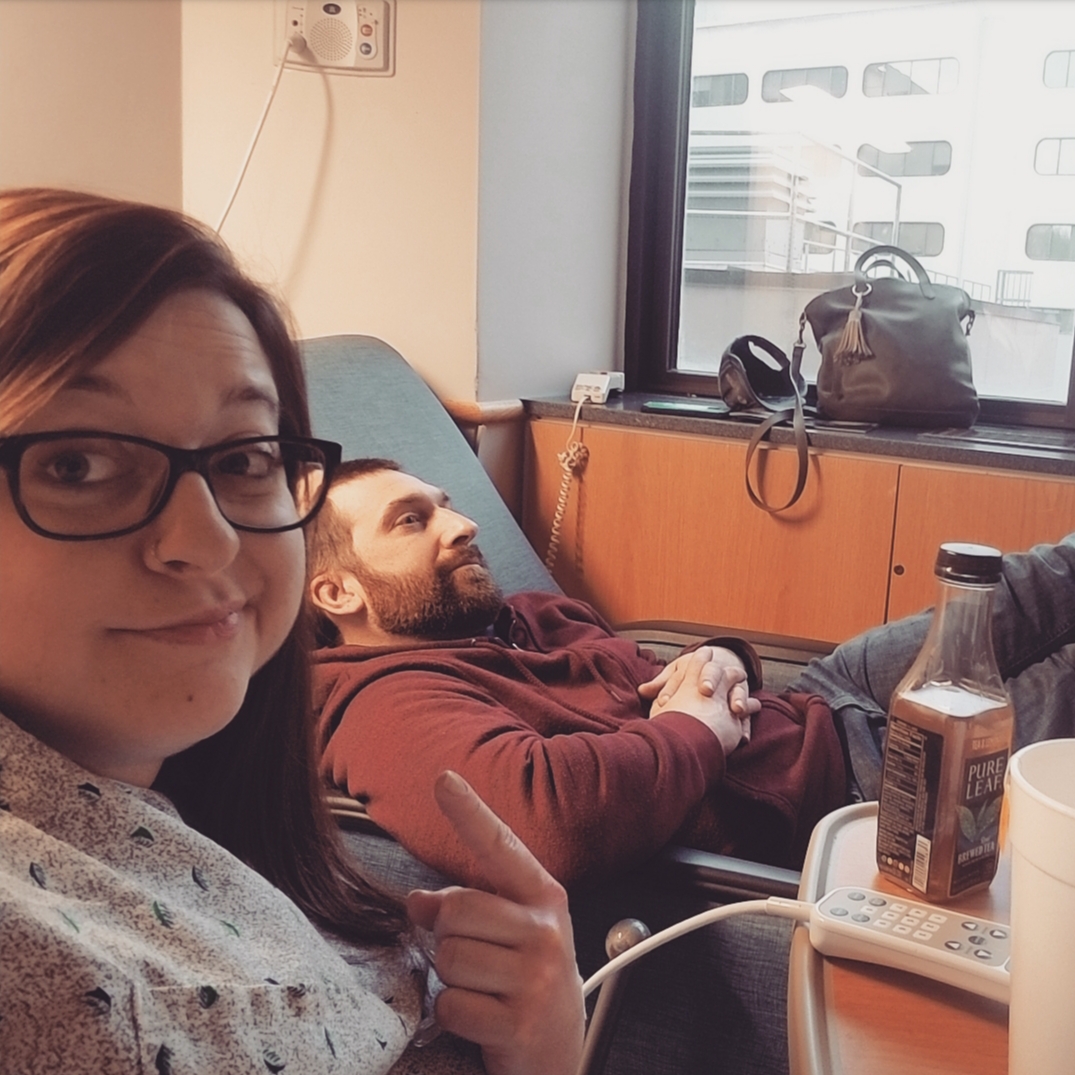Before cancer came into my life, I was a very social person. My various professional ventures along with the diverse group of friends kept me on the go. Even though I dealt with anxiety it was mild enough that I was still a social butterfly.
I was diagnosed with anal cancer on May 5, 2015, that’s Cinco de Mayo. We had the day planned, going to the groceries for Taco & Nacho Day. Watch mindless shows and spend the day together.
Much like others like me, your caregiver becomes your world.
We were three years into our relationship, and this was not on our Bingo card of relationships… Or was it? That whole summer was spent in bed or on the couch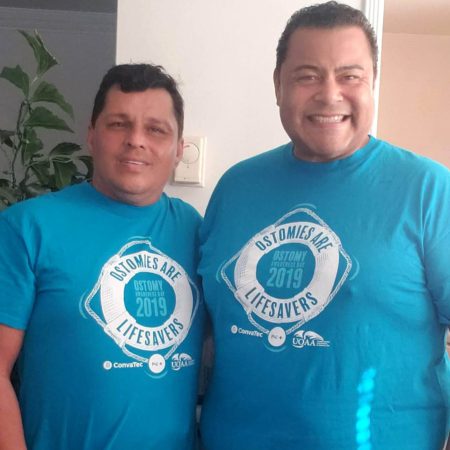 sleeping. I couldn’t stand a lot of smells or people- so not much socializing.
sleeping. I couldn’t stand a lot of smells or people- so not much socializing.
Much like others like me, your caregiver becomes your world. You are dependent on them for food, medical needs, and conversation. Chrisitan, my boyfriend, was all that and more. He was also my punching bag and took all my frustration and honestly, I don’t know where he put that energy.
It made our relationship stronger; it tested the relationship and us. He also helped me get back into the real world easier although it takes the caregiver longer to step out of his role. I don’t know if they ever leave completely.
It took almost six months to decide or be convinced for the ostomy surgery. I had done hyperbaric chamber treatment, and we were hoping things would heal. We expected a miracle. My sphincter would not grow back.
Diapers were not very convenient for work. I traveled quite a bit and changing on the go was a pain in the butt. Those changing tables in the bathroom don’t hold an adult! I finally picked a date for the surgery.
My surgery was scheduled for April 1, 2016. If that date sounds familiar it’s because it’s April Fool’s Day. Yes, my surgery was a joke, and I wasn’t laughing. I didn’t have a mentor, buddy or a nurse to tell me what to do. My brain was in constant conflict between I don’t want anyone to see me, and I need to get back out in front of people. I wanted to act, public speak, or at best go shopping and try on clothes.
Go through the feelings and emotions. I denied that anything happened, got very angry, negotiated with my higher power, still dealt with a bit of depression, and I’ve accepted that this is my reality. It has allowed me to move forward faster.
When I first started to go out in public, I would use surgical tape and bind my bag down. I was sure that if I taped it hard enough it would go away. I felt so self-conscious that I would wear shirts one size larger.
Then one day, in a support group, I heard about wraps. I had to look up this miracle device that would give me back my manly figure. As if they were security secrets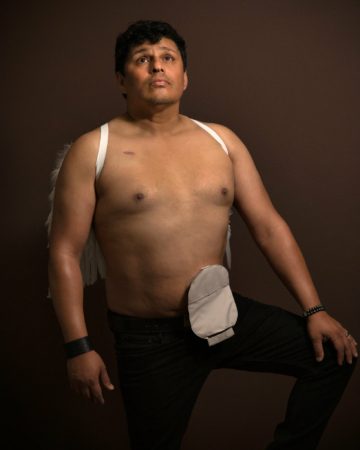 that you had to find through a scavenger hunt.
that you had to find through a scavenger hunt.
I felt confident, strong, and back to me… Kinda. I felt like a piggy bank and that everyone was looking at my belly. Finally, Tommy the Ostomy and I had worked out the kinks, made peace, and became frenemies… Kinda.
Eight years later I am out more, I travel more, and still panic a bit. Tommy still manages to surprise me from time to time. Almost every day I put on my belly-bra to keep things tight and snug, and I watch my weight so things don’t pop out.
I still get panic attacks, I still think everyone is looking at me, and I still think I’ll wake up and It’ll be gone. Except I have more self-esteem, I share my story, and I look great in a tight shirt and jeans!
If I could share any words of wisdom if a new ostomate it would be go hunting online for patient stories and trusted information like this website. Find a support group and ask as many questions as pop in your head. Some things you’ll learn on your own but we’re here to help.
Another thing, go through the feelings and emotions. I denied that anything happened, got very angry, negotiated with my higher power, still dealt with a bit of depression, and I’ve accepted that this is my reality. It has allowed me to move forward faster.

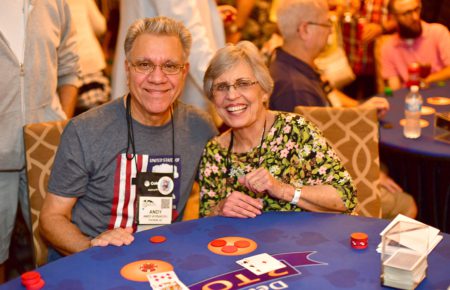
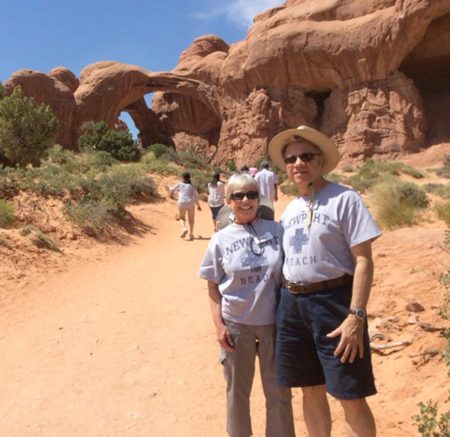 the next few years they met up in New Orleans, Virginia, Cleveland, Hartford and of course at the next UOA conference in 2005 in Anaheim.
the next few years they met up in New Orleans, Virginia, Cleveland, Hartford and of course at the next UOA conference in 2005 in Anaheim.
